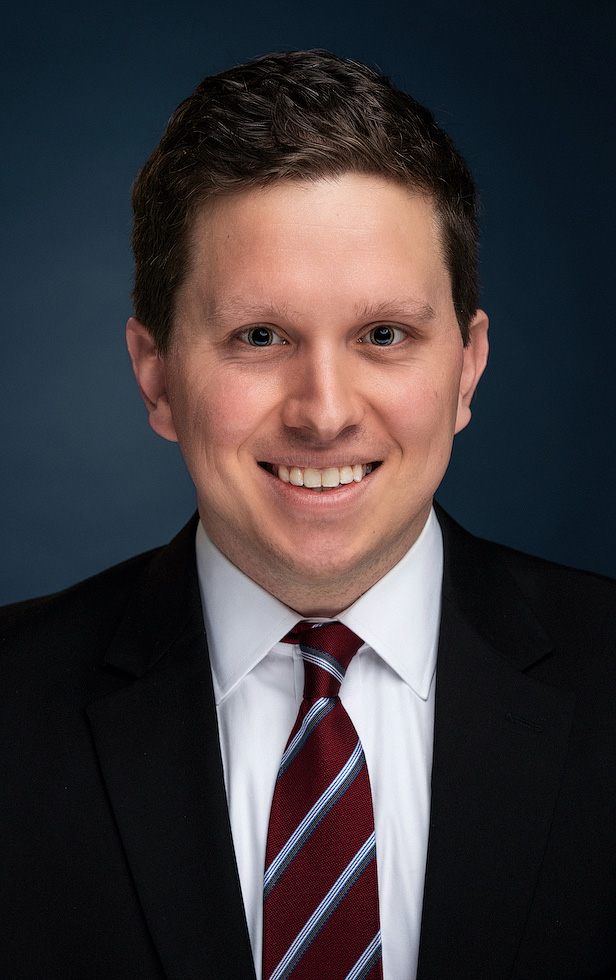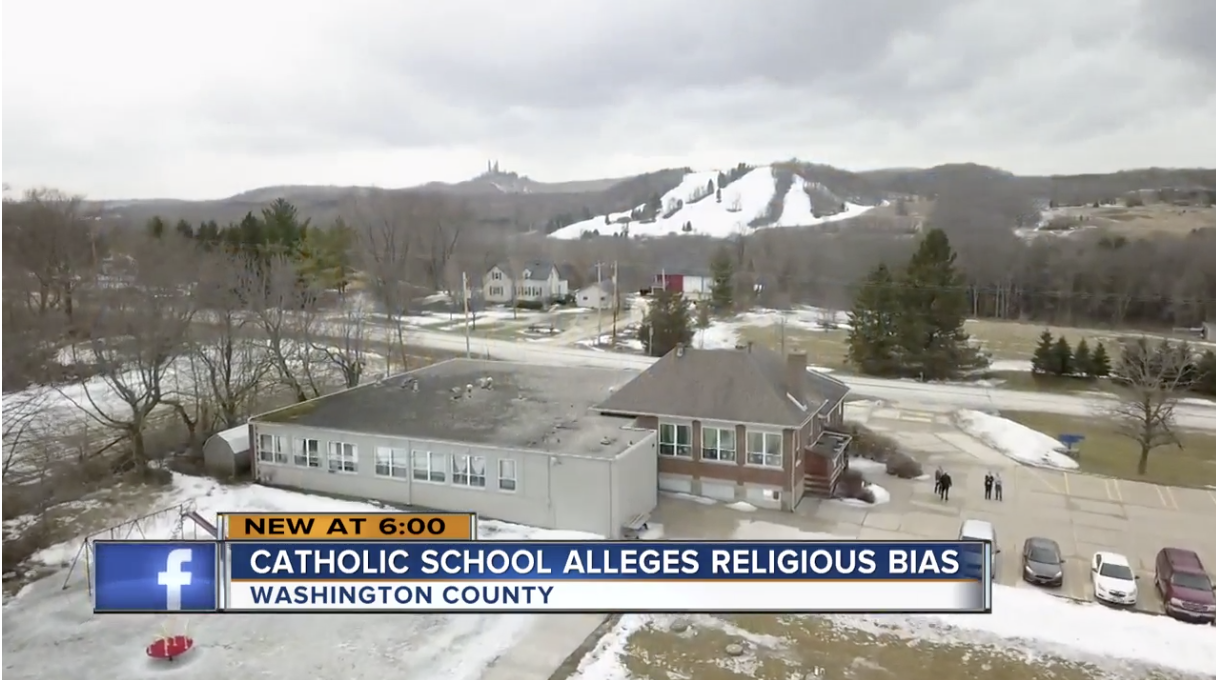Equality Under the Law Toolbox
Case Name: St. Augustine School v. Jill Underly, Superintendent
Type of Case: Religious Freedom
Court: Petition of Cert to US Supreme Court
Filed On: April 8, 2016
Current Status: We renewed our motion for summary judgment, the Court partially granted and partially denied it. We appealed, and Attorney Rick Esenberg argued at the Seventh Circuit, but unfortunately the Court affirmed in a 2-1 decision. The declaratory judgment on our state law win stands, and the case is now concluded and will be officially closed upon action of the district court, which is expected this month.
Press Releases
FEDERAL COURT RULES SUPERINTRENDENT OF PUBLIC INSTRUCTION AND SCHOOL DISTRICT VIOLATED SCHOOL TRANSPORTATION LAW
September 19, 2022 | A federal district court ruled that the Wisconsin Superintendent of Public Instruction (SPI) and Friess Lake School District violated state transportation law when they refused to approve the transportation attendance area of St. Augustine School, a private school in Colgate, Wisconsin.
WILL APPEALS RELIGIOUS LIBERTY CASE TO U.S. SUPREME COURT
March 25, 2022 | WILL filed a petition for writ of certiorari to the United States Supreme Court in St. Augustine v. Underly, urging the high court to review whether the Wisconsin Superintendent of Public Instruction violated the First Amendment when it withheld transportation benefits from an independent Catholic school unless it agreed not to call itself “Catholic.” The Seventh Circuit Court of Appeals issued a decision in December that DPI violated the law, but did not resolve the core constitutional questions of religious liberty at stake in the case.
FEDERAL COURT OF APPEALS RULES DPI VIOLATED STATE LAW WHEN DENYING TRANSPORTATION BENEFITS TO PRIVATE SCHOOL FAMILIES
December 21, 2021 | A three-judge panel of the federal Seventh Circuit Court of Appeals issued a decision in St. Augustine v. Underly, a lawsuit first filed by the Wisconsin Institute for Law & Liberty (WILL) in 2016, that the Wisconsin Department of Public Instruction (DPI) violated state law when denying transportation benefits to families attending St. Augustine School, an independent Catholic school in Washington County.
WISCONSIN SUPREME COURT TO HEAR ARGUMENTS IN WILL RELIGIOUS LIBERTY LAWSUIT
February 26, 2021 | The Wisconsin Supreme Court granted a request from the United States Court of Appeals for the Seventh Circuit, Thursday, to consider a question of Wisconsin state law in St. Augustine v. Taylor, a religious liberty lawsuit first filed by the Wisconsin Institute for Law & Liberty (WILL) in 2016.
U.S. SUPREME COURT ORDERS SEVENTH CIRCUIT TO RECONSIDER DECISION IN WILL RELIGIOUS LIBERTY CASE
July 6, 2020 | The Wisconsin Institute for Law & Liberty’s (WILL) religious liberty lawsuit, St. Augustine v. Taylor, was remanded by the United States Supreme Court back to the Seventh Circuit Court of Appeals for reconsideration.
WILL ASKS U.S. SUPREME COURT TO REVIEW RELIGIOUS LIBERTY CASE
March 14, 2019 | WILL is asking the United States Supreme Court to review St. Augustine v. Taylor, a suit that poses critical questions on the relationship between religious liberty and government benefits. In 2016, WILL filed a suit on behalf of St. Augustine School, an independent Catholic school in Hartford, Wisconsin, against the Friess Lake School District and the state Department of Public Instruction because they were denying their students transportation rights by determining the meaning of the word “Catholic.”
WILL SUES SUPERINTENDENT EVERS FOR RELIGIOUS FREEDOM VIOLATIONS
April 12, 2016 | On behalf of a private school and the parents of three children who attend the school, the Wisconsin Institute for Law & Liberty (WILL) has filed a lawsuit against Superintendent of Public Instruction Tony Evers and Friess Lake School District for unconstitutionally declaring “who or what is Catholic.”
The Lawsuit: WILL filed this case in August of 2016 and originally lost the case, but pursued it through numerous different venues including both the Wisconsin and U.S. Supreme Courts. In a vigorous dissent in the Seventh Circuit Court of Appeals, Judge Kenneth Ripple warned that the original adverse decision against the Plaintiffs “raises haunting concerns about the future health of the Religion Clauses [of the First Amendment] in this circuit.” The decision was also criticized in an article in the June 2019 edition of the Harvard Law Review.
The United States Supreme Court took the case and vacated the original decision of the Seventh Circuit and remanded the case for further consideration. Finally, in 2021, the Seventh Circuit issued a decision making clear that the Wisconsin Department of Public Instruction violated state law when it denied the families at St. Augustine school transportation benefits; and, then remanded the case to the District Court for further proceedings. Then, last week, the District Court issued a formal declaration that the Defendants violated state law.
Background: Wisconsin provides transportation aid to qualifying private school students as long as there is not an overlapping attendance area between private schools that are affiliated with one another; or, more specifically, affiliated with the same sponsoring group. In this case, SPI and Friess Lake School District (now part of Holy Hill Area School District) denied St. Augustine students busing rights because there is an Archdiocesan Catholic school in the attendance area.
However, St. Augustine is independent and unaffiliated with the Archdiocese. In this case, the school district and SPI determined the definition of “Catholic” and withheld government benefits until St. Augustine agreed not to call itself “Catholic.”
Current Status: In 2021, the Seventh Circuit issued a decision making clear that the Wisconsin Department of Public Instruction violated state law when it denied the families at St. Augustine school transportation benefits; and, then remanded the case to the District Court for further proceedings. Then, on September 19, 2022, the District Court issued a formal declaration that the Defendants violated state law.
CASE DOCUMENTS
- PDF: Summons & Complaint
- PDF: Evers Answer
- PDF: Evers Motion to Dismiss Brief
- PDF: Def. Summary Judgement Brief
- PDF: Reply Brief
- PDF: Decision and Order
- PDF: Appellant’s Brief
- PDF: 7th Circuit Decision
- PDF: Certiorari Petition
- PDF: Reply Brief for Petitioners
- PDF: Wisconsin Supreme Court Opinion, July 2, 2021
- PDF: Seventh Circuit Court of Appeals Decision, December 20, 2021
- PDF: Petition for Writ of Certoriari, March 25, 2022
- PDF: Order and Decision, September 19, 2022
- PDF: Judgement, September 19, 2022
- Mandate and Seventh Circuit Decision and Judgment September, 5 2023
Media and Commentary



